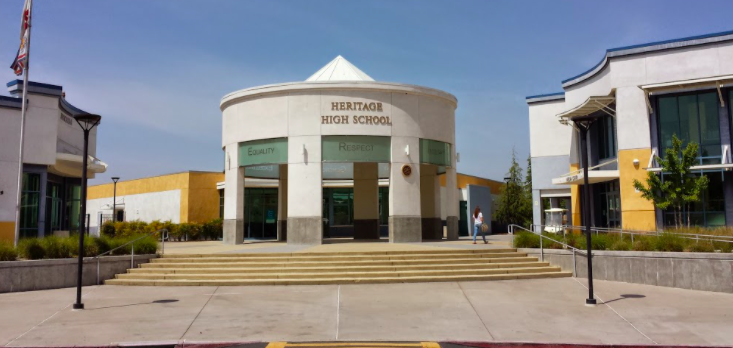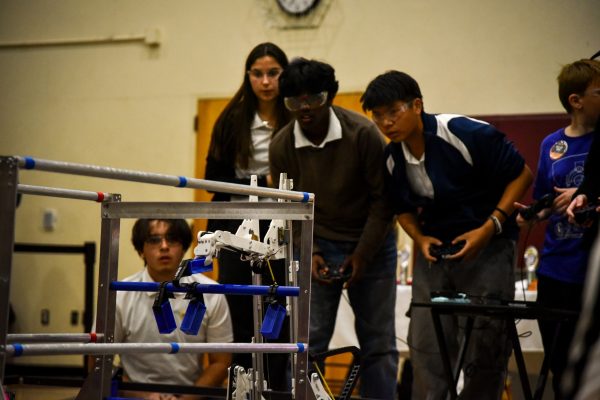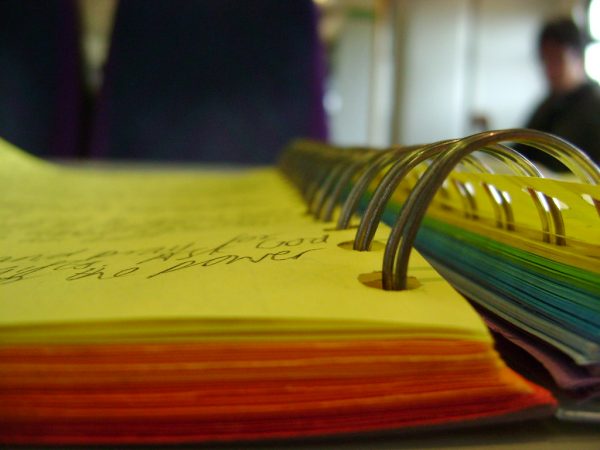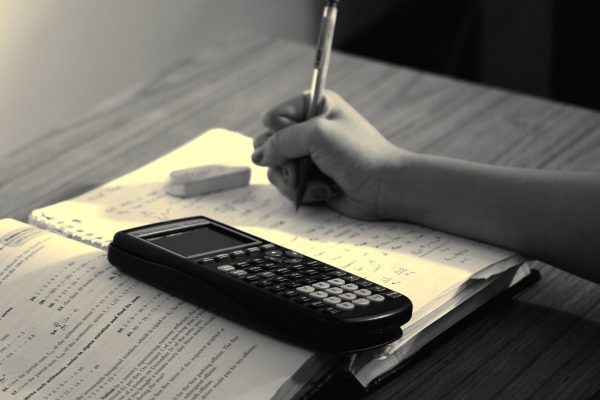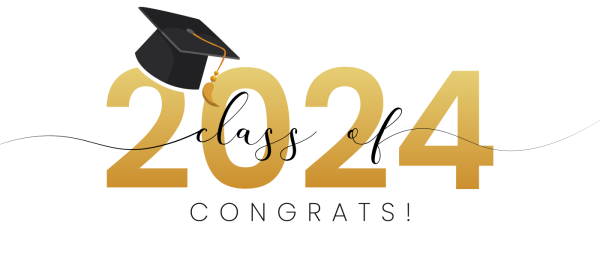Adapting Hybrid Schedule in In-Person School
The last time many Heritage Patriots have stepped on campus was March 13, 2020 due to a required national quarantine. What many initially thought was a short vacation turned into months and months of social isolation.
Throughout this time, talks of the possibility of students returning back to school has continued to spread. The date seems to keep getting pushed back as increases in COVID-19 cases escalate.
Initially recommended to return September 24, the Board of Trustees came to an agreed conclusion in a meeting that took place October 21, after California’s Blueprint for a Safer Economy was brought to Contra Costa Health Services.
The date kept in mind was January 12, as released in a District statement from the superintendent. They strongly empathized with all ranges of concerns: health, social, academic.
Heritage Principal, Carrie Wells, believes that it would be wise to return in all of those same aspects.
“I see the struggles that many of our students and families are having with distance learning; not just academically but socially and emotionally. Many of our students need in-person interventions to be successful academically, and the motivation as well as accountability that students have being in person with a teacher cannot be replicated over a virtual platform even though our teachers and students are giving their best efforts,” said Wells.
However, it has been brought to the public’s attention just recently that after months of staying in the “Moderate” risk zone, the Contra Costa County has been placed back under the “Widespread” risk level, therefore the probability of going back on this date is highly unlikely, but should be decided at the November 18 board meeting.
Despite this, it has been established that if and when students go back, adjustments will have to be made. Most importantly, what is greatly encouraged and will be stressed in school is the alertness of hygiene and healthy practices. An abundance of health supplies will be in as many places on campus as possible to limit the amount one must go to say wash their hands or clean their possessions.
Disinfecting and continuous cleaning will be constant. Limited-to-no sharing will be a new element, as well. Frequently touched items, like doorknobs, light switches, sinks, etc., will be of main concern.
It goes without saying that, like in most —if not all— public places, face masks will be required and reinforced. Those who do not have a mask will be provided one or excluded from campus.
It would, of course, not be the same thousands of students that are enrolled in Heritage everyday, but a modified version. The day in which students are assigned will be determined by their last name in an A-L vs. M-Z format, and/or, dependent on their SLC.
Another new accommodation will be keeping the same teachers with the same group of students, not interchanging like what the typical Heritage student is used to.
Increased distance of desks and movement will be incorporated, as well. Screen protecting plexiglass will be around each desk, blocking any spread of saliva or any infection carrying transmissions.
Students, teachers, administers, and parents alike have all had to adjust through this difficult year. Many strongly believe that going back would be impractical, for example Patriot Wren Driscoll (11) is immensely distraught of the thought of going back.
“There is no point in bringing everyone back when cases are still rising,” commented Driscoll.
The safety aspect seems to play a common variable in many. Nevertheless, the months away has proved detrimental to many student’s academic proficiency. Heritage student, Rijja Shahid (11), expressed said frustrations.
“It is important to stay safe and limit contact with others, but I believe that going back to in-person school in January would be good for the safety of us students. Personally, being able to learn and focus is more difficult during online school,” stated Shahid.
There is no doubt that many agree with this sentiment. Grasping material through a computer, surrounded by distractions, is not easily tangible. That is why the importance of going back trumps several, but not all, objections.
“My hope is that while not everyone will agree or be able to come back in person due to their individual circumstances that there will be choices given to students and their families that will help them meet graduation requirements and pursue their goals after high school,” emphasized Wells.
As the mass remains uneasy, there is no doubt that there eventually will be an efficient and safe plan for slowly transitioning back into somewhat of a ‘normal’ life once again.
Until then, it is important for all to not only continue staying safe and responsible, but most definitely, patient during these unconventional times.

